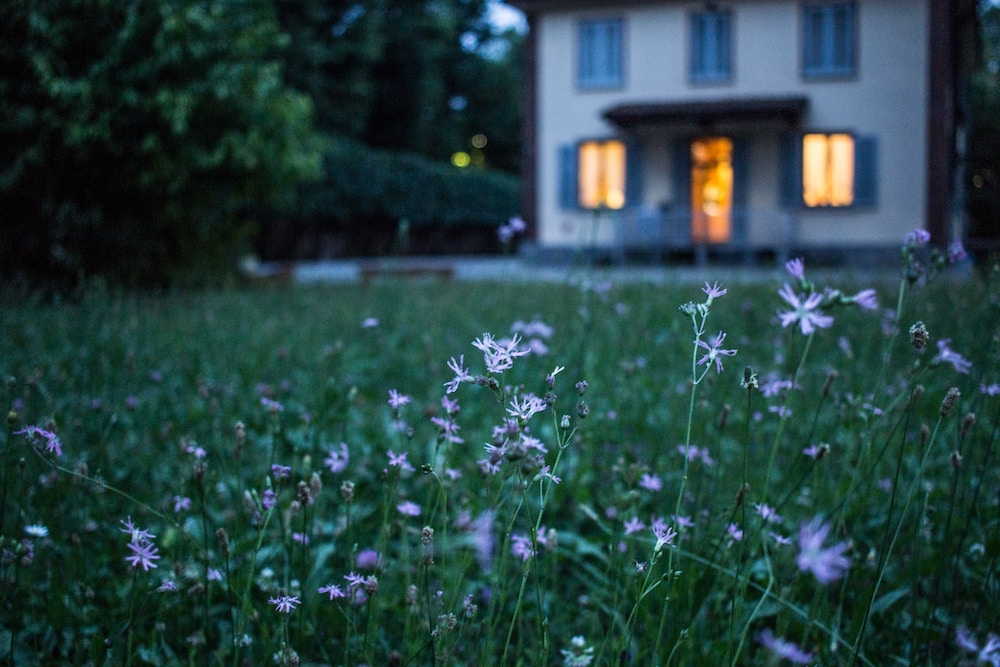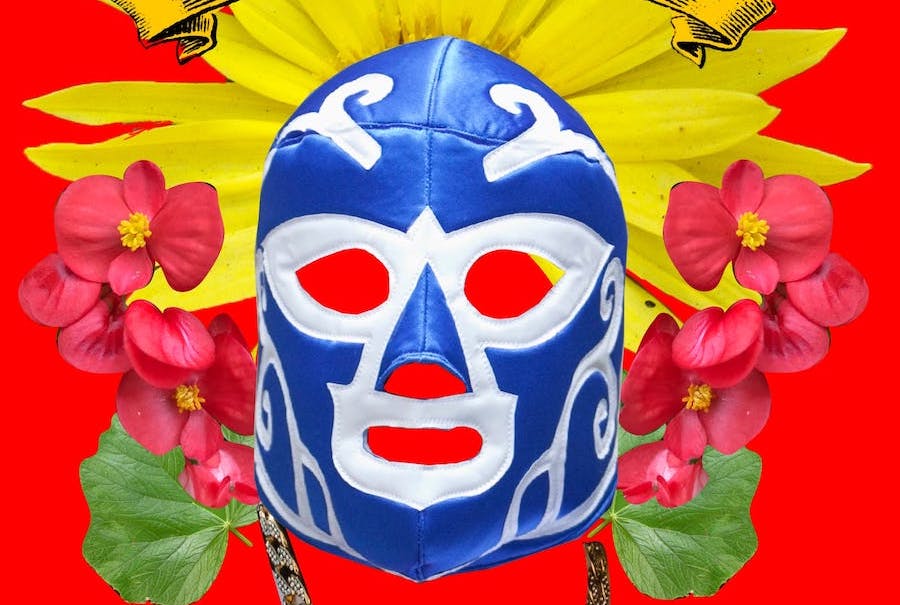Craft
After My Grandfather Died, I Met Him for the First Time in Poetry
I admired my Nanu, but I never knew how alike we were until I discovered his book of poems

Maybe, it is you that loves truly.
Am I the counterfeit?
Before he died, I knew my maternal grandfather—my Nanu—as an assured, quiet man. Having been in the army, he had a routine and he stuck to it. Every day, he doted over my grandmother and her delicious home-cooked meals. He wouldn’t leave the house unless absolutely necessary. He spent mornings in the living room surrounded by his books, newspapers, and sudoku. He never missed a glass of scotch in the evenings.
Nanu addressed me, his first grandchild, as “young lady.” And around Nanu, I behaved like a lady too. The day my mother was in the hospital giving birth to my brother, my grandparents, who lived in New Delhi, took me out to dinner at the five-star Taj hotel. I was three, and Nanu told me I sat quietly in my high chair, poised as I nibbled on my food.
Growing up, I felt as though Nanu and I were alike in many ways. Even though much of our relationship was built on silence, we shared a mutual sense of calm and composure.
But of course, I wasn’t calm and composed at all, not internally. And it was only after he died that I found out just how similar Nanu and I truly were.
The sounds of silence sweep together
Like the oncoming waves towards the shore.
They embrace and are engulfed at once
In flaming passions—now dormant.
My relationship with Nanu was built on silence, yes, but also on a shelf full of stories. Nanu loved buying me books. From the Harry Potters and the Princess Diaries to the Brontës and Dickens, Nanu quietly introduced me to a plethora of writing at a young age.
Nanu was talented at drawing the utmost loyalty from people. He always had “a guy” ready to provide him with whatever service he needed. The banker, the barber, the fruit-vendor—they all respected him so much that they’d go above and beyond their duties, often bringing their services straight to his front door.
My relationship with Nanu was built on silence, but also on a shelf full of stories.
My favorite one of these guys was the owner of a small bookstore in old Delhi. A few times a year, Nanu would call up this guy before I showed up to visit, and give him a list of books I wanted. And the books would arrive at Nanu’s house right on time, waiting to be read by me.
A year ago, I visited the store, and spoke briefly to the guy about Nanu’s life. Nanu died in the summer of 2017, and though the book orders had slowed upon his ill health the last few years, the bookstore guy was shaken upon hearing the news. I hadn’t realized how important their relationship was to each other until just that moment, and furthermore, just how important it had been in shaping my own life and career. By giving me books to read during my visits, year after year after year, Nanu and the bookstore guy had unknowingly teamed up to set in me a foundation of endless curiosity.
What difference does it make
In the eternal cycle of life?
The trials, the tribulations
Of one human soul amongst so many
Leave no mark
On the misty mirror of life.
Of course, when I say curiosity, I mean existential dread. Because that’s what books do to me. The more I delve into another’s world, the more I look back into myself and wonder how I play a part in all of it.
This wasn’t something I’d ever talk to Nanu about. To me, he was the epitome of certainty and ambition. Before he became a homebody, Nanu was an avid traveler. After retiring from the army, he started a business to export Indian handicrafts to Germany. Nanu loved Europe, and would get on long flights four or five times a year to attend trade fairs and meet buyers.
I felt as though he always aimed for excellence. He stood tall at 6’2”, was perfectly eloquent with his English, and lived a life of elegance. I never felt as though I could infiltrate his poise with my growing sense of internal misery.
So when I’d cry, bang doors, and wail for hours on end as a teenager, my mother would explain to me that depression and anxiety ran in the family. But I hadn’t seen any of it in Nanu. Why, I’d ask her, couldn’t I be more like him?
Years merge into memory
Time mellows the mind.
The angry young man is tolerant
Flinty temper but a fading glimpse
Of fire and brimstone, sparks, and crackers.
When I visited India in 2018, it was to prepare for the fact that I would probably soon be returning home for good. I had graduated from college in Seattle, and was figuring out what to do next. While I knew I had many decisions to make, I did not expect it to be the last time I saw Nanu.
He had been unwell for a while. The last time he smiled, my mother says, was the last time he spoke to me. We were at the hospital, and he was hooked up to a bunch of tubes. To make him feel better, I told him I’d been applying to graduate schools in New York. At that moment, I was far from feeling like I could move to the big city, far from knowing what I wanted at all, but when I told Nanu, I saw his tired eyes sparkle. My uncertainty was beside the point; this is what he wanted for me.
The tentacles of death
Had started creeping forward.
The ravages of time
Had taken their toll.
The body emancipated,
The soul shrivelled,
The mind turned mean
As hell.
As Nanu’s last days neared, I was getting ready to head back to Seattle and wrap up an internship. My mother, knowing I would feel lonely and distant upon his death, pulled me aside to show me something.
It was a book of poetry, which in itself was not surprising. I had graduated from college with a degree in creative writing, and had a few poems in small journals and zines. My mother must have known a book of poems would cheer me up. And it was Nanu, after all, who by turning me to books, had led me to poetry as the one friend I always turn to in times of distress.
The typewritten copy of the yellowing manuscript was titled “The Shifting Sands.” And under it was Nanu’s name.
Nanu, my mother told me, had been a poet too.
Come, hold my hand.
A smile.
Give me a reason to get up
And go on in life.
I’ve always been of the belief that you can’t truly know anyone, but never had I been introduced to someone so deeply only after their death. While Nanu was alive, my bond with him had been reasonably strong, as I’m sure many granddaughter-grandfather relationships are. But his secret life as a poet had never come up in open conversation. And finding out that I wasn’t the only poem-writer in my family instantly ignited in me a giddiness during a time I felt I should have been mourning.
As I sifted through his book, I realized that everything I thought I knew about him was a cover for a man enveloped by a multitude of fears and desires.
Nanu wrote poems spanning a period of his life when he was struggling to climb out of a deep depression. I sifted through his book cover to cover as if I were reviewing it for an assignment. And as I did, I realized that everything I thought I knew about him—his high standards of success, his urge to travel, his sense of routine—was all a cover for a man enveloped by a multitude of fears and desires.
Nanu held a beautiful and complex understanding of what it meant to be alive. And as a seeker, he sought to answer his own existential queries through poetry.
Healing of spirits cannot commence
For we haven’t acknowledged
Even to ourselves the truth
Why play Scrabble
When the word is simple
L…O…V…E
As an exporter of Indian handicrafts, a traveller, and avid reader, Nanu used poetry to understand the role of India within the global economy.
Maharajas are gone
Taking snake charmers with them.
The rope trick has vanished.
Lazy opulence is there though
Mocking at its isolated existence.
And, most notably, Nanu’s poems revealed to me the source of his deepest despair. He was a doting father afraid his child was going to die. In the year 1970, my mother was born with a disconnected esophagus, and couldn’t eat until she was six years old. In those six years, she underwent two serious surgeries, and Nanu explored that scary time in their lives with several poems that make up the last few pages of his manuscript.
Yes, my child
I send you to the surgeon’s knife
Knowing that the odd chance exists
Of cruel nature’s appetite craving more and more.
All together, Nanu’s poetry revealed to me that we were in fact the same. He too had an intrinsic itch to look beyond himself and find how he fit within the rest of the world. He explored how, as an Indian, his work fit into the European market. How, as a father, he fit the role of caretaker. And finally, how, as a man, he fit into the limits of the universe.
To have his words enter my life after his death was a bittersweet feeling. I wish I could have had the chance to ask him more about his dreams, and to share my own work with him.
I learned from his death, and his poems, that silence carries a lot of space.
Yet I’ve never felt closer to Nanu than I do today. I learned from his death, and his poems, that silence carries a lot of space. Not just the kind that pushes you toward introspection, but the kind that allows for the freedom to move within your curiosities.
And ultimately, I did only get to understand Nanu after his death, but he was the one to set the foundation for it. I’ll never really know if he gave me books with the full understanding that they would bring me to my career today, or if the gifts were more selfish: an indirect way of sharing his own curiosities with me. Be it consciously or not, his grooming me to become the writer I am today was a testament to his own love for words, and poetry. And now, after his death, I carry forward that curiosity in my own life and work, hoping I too will one day pass it along.








